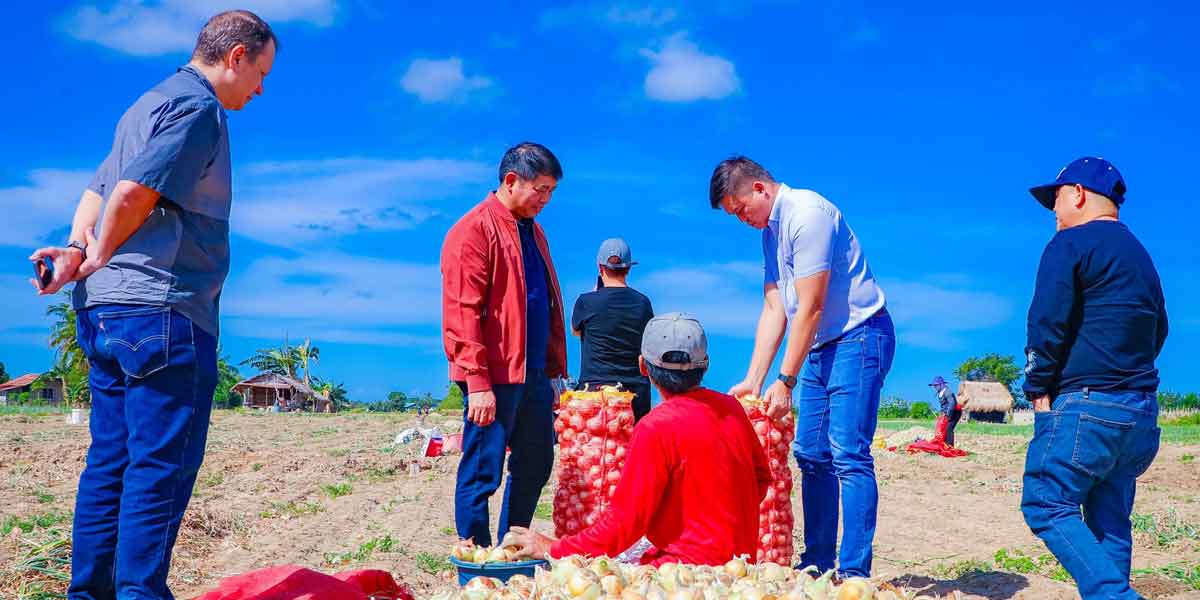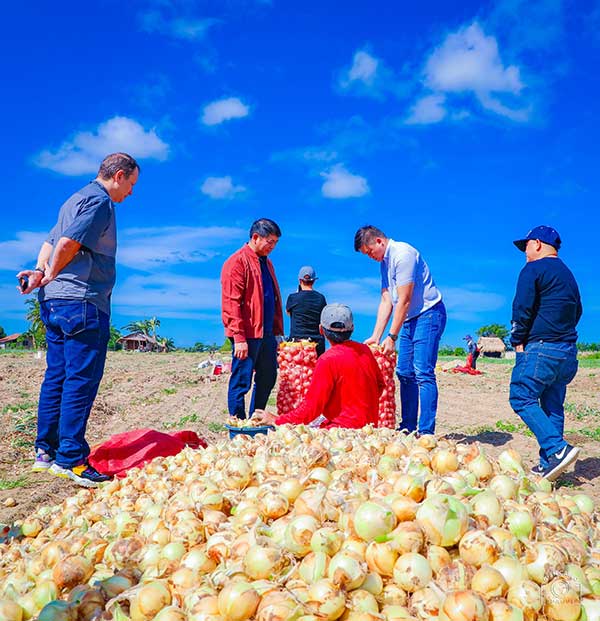

The Department of Agriculture is taking steps to improve the production of quality onions in the country, including partnering with local government units in undertaking information awareness and training programs.
DA officials led by Assistant Secretaries Arnel de Mesa, Danny Atayde, and Genevieve Guevarra, together with Bureau of Plant Industry (BPI) Director Glenn Panganiban, and Agribusiness and Marketing Assistance Service (AMAS) Director Junibert De Sagun, recently conducted surprise visits to production areas in Bongabon and Rizal, Nueva Ecija to observe the ongoing harvest and discuss ways to assist onion farmers.
The DA officials cited the importance of regular monitoring of onion farms to immediately address any production challenges that may affect the quality and volume of harvest.
“Let us practice early reporting and monitoring of unusual events in the farms,” Asec. Guevarra stressed during the meeting with onion growers and members of the Provincial and Municipal Agriculture Office.
She added that government is ready to support the industry to ensure that farmers maximize productivity to increase their income.
BPI Dir Panganiban added that the DA, through BPI, will provide a technical support program to onion farmers and agricultural extension workers to equip industry stakeholders with effective tools and knowledge in managing the production areas.
Aside from the regular information campaign carried out by the Regional Crop Protection Center, BPI will hold training programs on Integrated Pest Management, efficient use of biocontrol agents and judicious use of farm inputs, including fertilizer and pesticides.
“We will also assist onion growers of Nueva Ecija in securing a Philippine Good Agricultural Practices (PhilGAP) certificate to enable them to access more markets,” Panganiban added.
The DA also committed to establish more storage facilities not only for onion but for other high value crops as well.
The Province of Nueva Ecija, a major grower of onions in Central Luzon, has more than 10,500 hectares planted to the white bulb. Nationwide, volume of production for 2024 is projected at more than 300,000 metric tons.
“We’re expecting positive production for the year,” said De Mesa, who is also DA spokesperson. He noted that the presence harabas or fall army worm has slightly affected yield. The pest’s impact on onion production, however, has been minimized by the pro-active efforts of the national and local government. Reports from the Provincial Agriculture Office noted that only eight percent of the total production area was affected.
“With the pro-active efforts of the national and local government, the effect is considered negligible,” De Mesa said. (DA-AFID)